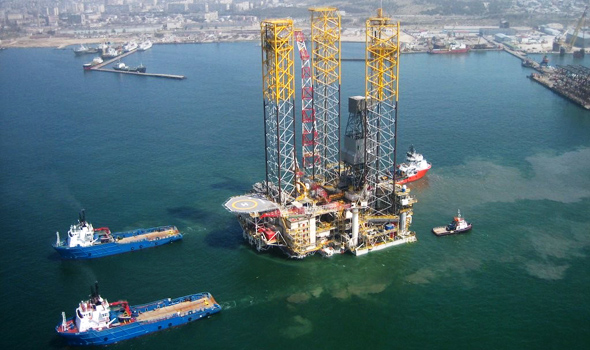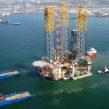
Post-Nabucco Era in Caspian Pipeline Business and Politics
Publication: Eurasia Daily Monitor Volume: 9 Issue: 24
By:

For more than a decade, Nabucco was the only pipeline project (and lately, the frontrunner project) for transporting Caspian gas to EU territory. Nabucco relied exclusively on Azerbaijani gas for the pipeline’s first stage (the hopes to add gas volumes from northern Iraq proved unrealistic in any usable time-frame). The European Commission worked hard to align the financing and gas supply guarantees for Nabucco, a strategic project on three counts: its design capacity (31 billion cubic meters [bcm] annually), its market destinations (Bulgaria-Romania-Hungary-Austria-Germany, all of which need diversification from Russian Gazprom), and its role to provide a transportation solution for Azerbaijani and Turkmen gas through the same pipeline.
The European Commission’s efforts notwithstanding, Nabucco lost momentum and, ultimately, credibility in its existing form (see EDM, January 31). The tipping point may be traced to November-December 2011, when several adverse developments converged. The European financial crisis deepened (and the prognoses worsened), indefinitely postponing any decisions by lending institutions to finance Nabucco. Nor did the project’s management come forth with a long-expected correction to its cost estimates. The Shah Deniz gas producers’ consortium in Azerbaijan could no longer postpone the investment decision in that project’s Phase Two, which necessitates determining the transportation solution in early 2012. With that clock ticking, Nabucco was seen to be far from ready with the solution. Conversely, the Nabucco project’s planning assumptions outran the slow development of a trans-Caspian solution for Turkmen gas.
Ultimately, British Petroleum and Azerbaijan’s State Oil Company (the most influential shareholders in the Shah Deniz producers’ consortium) offered in October and December 2011, respectively, transportation solutions to replace Nabucco outright. BP’s concept, South East Europe Pipeline (SEEP), however nebulous at this stage, would eliminate Nabucco in its entirety, replacing it with a non-strategic, 10 bcm per year concoction of other owners’ pipelines along Nabucco’s original route (see EDM, November 2, 3, 2011; February 2, 2012). BP is expected to develop this concept into a project. The Azerbaijan-Turkey project, Trans-Anatolia Gas Pipeline (TAGP; Turkish acronym TANAP), would replace Nabucco across Turkey’s territory, with a planned capacity of up to 30 bcm per year, comparable with Nabucco’s in strategic significance. This would necessitate one or several continuation pipelines into EU territory. A reconfigured Nabucco could become one such continuation pipeline within the EU, whether under the Nabucco brand or a different name.
Nabucco’s six shareholders are staying with the consortium and the project (while the Austrian management is redoubling promotional efforts). No shareholder would quit the Nabucco consortium. However, Nabucco’s German shareholder RWE is multiplying its public overtures to TAGP (1News.az, January 20). Turkey’s government (also a Nabucco shareholder through Botas) announces that it has done “more than its share” for Nabucco and it “prioritizes” TAGP, which is “easier to implement” than Nabucco (Trend, January 20, 23, 30, February 1). Romania, historically the most loyal partner in the Nabucco consortium, is drawing its own conclusions from Nabucco’s loss of momentum. Bucharest seeks to revive the AGRI proposal for liquefied natural gas (LNG) transportation from Azerbaijan via Georgia and the Black Sea to Romania. AGRI is yet another competitor (albeit a small one) against Nabucco over Azerbaijani gas.
TAGP does not invalidate Nabucco’s basic rationale. At its core at least, that rationale is common to Nabucco and TAGP: transporting Azerbaijani and, potentially, Turkmen gas to Europe (rather than Russia) through a dedicated transit pipeline, on a route outside Russian control. However, Nabucco seems far from ready to proceed with implementation, while Azerbaijan is capable of implementing its TAGP project without delay from its own resources. Emerging as a significant “gas nation,” Azerbaijan could no longer wait indefinitely for Nabucco to proceed.
Gas extraction in Azerbaijan is expected to reach 50 bcm annually by 2025, as new fields come on stream in addition to Shah Deniz (1news.az, January 23; Trend, January 24, 26, February 1). The lion’s share of that production will be available for export to points west (Georgia, Turkey, Europe). At present, BP and possibly other Shah Deniz consortium members want a quick decision in early 2012 on how to sell those 10 bcm post-2017. Azerbaijan, however, must plan for the longer term and the larger volumes.
Azerbaijan holds the main cards as gas producer country, with cash reserves to build a pipeline that Europe seems unable to finance, and coherent planning that eludes Europeans outside the European Commission. Thanks to Azerbaijan, moreover, Turkey can finally advance toward its goal of becoming a transit county for Caspian and Mideastern gas to Europe. Other transit projects, on which Turkey had based that hope, never came close to implementation via Turkey (Russian Blue Stream Two, Iranian gas, Nabucco, Arab Gas Pipeline from Syria) while gas projects in northern Iraq or offshore Cyprus look unrealistic for the foreseeable future. Thus far, it is mainly Azerbaijan that has enabled Turkey to become a transit country for oil (Baku-Tbilisi-Ceyhan pipeline) and is now poised to make Turkey into a major transit country for gas. Ankara could jeopardize that prospect, however, in case it reverts to its former ambitions to become a “hub” country, rather than a transit country.
Caspian gas politics and the investment decisions are clearly moving into a post-Nabucco era. Among the five rival solutions (TAGP, SEEP, Nabucco, ITGI, TAP), the Azerbaijan-led TAGP holds an unmatched combination of comparative advantages (see “Trans-Anatolia Gas Project and its rivals in Comparative Perspective,” EDM, February 2). Baku’s decision to proceed with TAGP in partnership with Turkey has cut the decade-old Gordian knot of Caspian pipeline projects.




